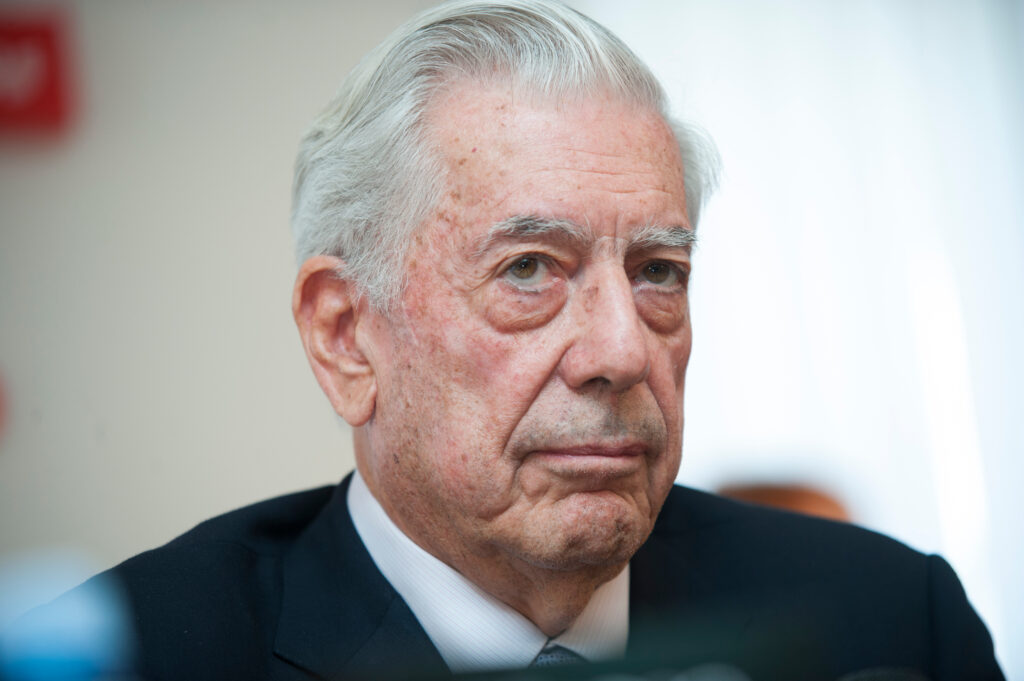Mario Vargas Llosa, the celebrated Peruvian author, passed away at the age of 89 in Lima, leaving behind a literary legacy that will be remembered for generations. Peru declared a day of national mourning to honor the memory of its most renowned writer, whose works touched readers around the globe. Leaders, authors, and readers from all corners of the world expressed deep sorrow at his passing, acknowledging his profound influence on modern literature. Vargas Llosa’s death has left a significant void in the literary community, and his words continue to resonate with people worldwide.
A Monumental Legacy in Modern Literature
Mario Vargas Llosa was one of the most important figures in Latin American literature, with works such as The Feast of the Goat and The Time of the Hero shaping the narrative of contemporary fiction. His storytelling transcended national borders and left an indelible mark on readers and writers across the globe. Fans hailed him as a visionary whose unique blend of fiction and political thought defined an era. His writing not only captivated audiences but also challenged them to think critically about the world around them.
As a writer, Vargas Llosa was celebrated for his mastery of the Spanish language. He possessed the ability to weave complex characters and intricate plots into stories that were both deeply intellectual and emotionally engaging. His keen insight into human nature and his sharp critique of societal issues made his works timeless, and they will continue to inspire generations of readers and writers.
Global Tributes and Reflections
Following Vargas Llosa’s passing, leaders from around the world shared their tributes, celebrating his life and contributions to literature. Spain’s Prime Minister, Pedro Sánchez, paid homage to the late author, calling him “a master of words.” Sánchez extended his condolences to Vargas Llosa’s family and the millions of readers who admired his works. He also acknowledged the profound impact the writer had on readers’ understanding of contemporary realities.
In addition to official government statements, the Spanish Royal Household also expressed their sympathies. King Felipe VI had presented Vargas Llosa with the prestigious Prince of Asturias Award in 1986, and since then, Spain had become a second home to the author. During his later years in Madrid, Vargas Llosa forged strong ties with the Spanish literary community, and citizens across the country mourned his passing as if he were one of their own.
A Writer and Intellectual Force
Vargas Llosa’s influence extended far beyond the realm of fiction. As an essayist, journalist, and critic, he used his platform to engage with political, social, and cultural issues. His essays in El País became required reading for those seeking insightful commentary on contemporary events. Literary critic Villanueva described Vargas Llosa as a rare intellectual with unmatched depth and charm, whose writing enriched debates and discussions around the world.
At the Royal Spanish Academy, Vargas Llosa was known for elevating intellectual conversations, often showcasing his vast knowledge of literature and linguistics. His acceptance speech for the Azorín Award further cemented his dedication to global literary traditions, where he honored the works of great writers such as Flaubert and Faulkner. His literary pursuits were always intertwined with a deep respect for the diversity of the Spanish language and its rich cultural history.
Remembering an Eternal Scribe
Vargas Llosa’s death has left an irreplaceable gap in the literary world, one that will never be filled. As Villanueva noted, his absence is “impossible to fill,” a sentiment that resonates deeply within the literary community. But while Vargas Llosa may no longer be with us, his voice lives on through his works. Readers will continue to carry his stories forward, ensuring that his legacy endures for many years to come.
As the world reflects on the life of Mario Vargas Llosa, his contributions to literature and thought remain an essential part of the cultural fabric. His works, which span decades and cover a wide range of topics, will continue to inspire readers and writers alike. His death marks the end of an era in Latin American literature, but his influence will persist for generations.


